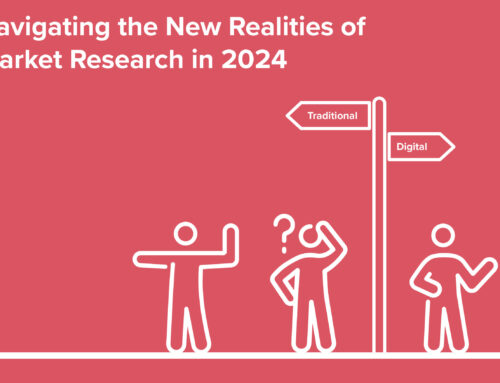How reliable are focus groups from a market research standpoint?
If you ever look up market research on the web, sooner or later the vaguely familiar buzz term ‘focus groups’ is bound to come up. Focus groups are the linchpin of any respectable market research agency and an indispensable tool in research projects dealing with qualitative data. However, few people stop to think exactly how reliable focus groups are from a market research perspective. The short answer to that question would be somewhat ambiguous, if not contradictory. Truth is, focus groups were never meant to be reliable per se but that’s not to say they can’t be relied on given the right approach. In fact, the best way to look at focus groups is not necessarily through the prism of reliability as they are one of those things that escape pigeonholing, especially with the recent rise of online focus groups in Poland and elsewhere in Europe and in the world.
But before we delve into the many advantages of online focus groups, let’s have a quick rundown of some of the things that make focus groups a bit of a no-no whenever reliability is your top priority. It is often wrongly assumed that the more people we gather in a room, the better collective feedback they’ll give us. But ask any psychologist (or teacher, or parent) and they’ll be quick to prove you wrong. In fact, there is a rather low threshold for how many people – often of different backgrounds, habits and preferences – can stay focused and explore ideas together without the discussion getting off track. And it’s not just behavioral psychology that’s to blame. Focus groups are a fairly complex and therefore expensive research tool that requires a good amount of logistics to truly work its magic. That’s why focus groups have always been all about concentration – not so much that of consumers participating in the study (though that too), but that of goals and resources.
Suppose our many years of experience running online focus groups are of any indication. In that case, it is much preferable to invite fewer curious-minded individuals and make their minds travel places than to have a roomful of vaguely engaged consumers with no team spirit. But even if we stick to the proven formula, get a skilled moderator onboard and seamlessly usher cherry-picked participants through the discussion, there’s no such thing as a foolproof market research study. Social mood is as a rule highly unpredictable, it is merely a matter of time before hurdles pop up. To begin with, there is only so much to build off of when all you have for data is loosely linked words and impressions. Qualitative by default, focus groups often provide data that sounds and feels rich on the surface but is rarely in-depth enough to be easily molded into concrete findings. Therefore, if your goal is to prove or disprove a hypothesis, either on-site or online paid focus groups might just not be the best way to do that.
What are focus groups good for, then? Quite a few things, actually. The reason why focus groups are such a prized asset in every market research agency’s portfolio, and why online focus groups have been so popular lately, is because they leave companies with versatile feedback full of handy pathways for brands to channel their product or service through. Once captured, bottled and drawn out right (and that’s what experienced research teams like ours are for), this data can be then passed on to brands in the form of content-rich digests that will grant them first-hand access to consumers’ minds, hearts, and well…wallets. And all that in a relatively short time, too! Other advantages of online focus groups in particular have also been their way of circumventing budgetary constraints by streamlining feedback loops and slashing commute on both ends.
If there’s one lesson to be learnt from the developments of the last ten or so years, it’s that online is here to stay. But that’s not necessarily bad news for market research companies in terms of running focus groups. In many ways, the advantages of focus groups seem to outweigh the disadvantages – not just for researchers and brands, but for participants as well. The best focus groups have proven to be able to provide the same kind of high-quality feedback as their offline counterparts while markedly reducing costs by embracing technology through and through without prejudice. As per our own experience, online paid focus groups are a great alternative to traditional discussions run on-site and they don’t sacrifice any of the qualities that make this research technique so special. And while focus groups in general are not a good-for-all solution in market research, their reliability is in their versatility and they can yield amazing results if your goal is to get a panoramic rather than keyhole view of your product.








